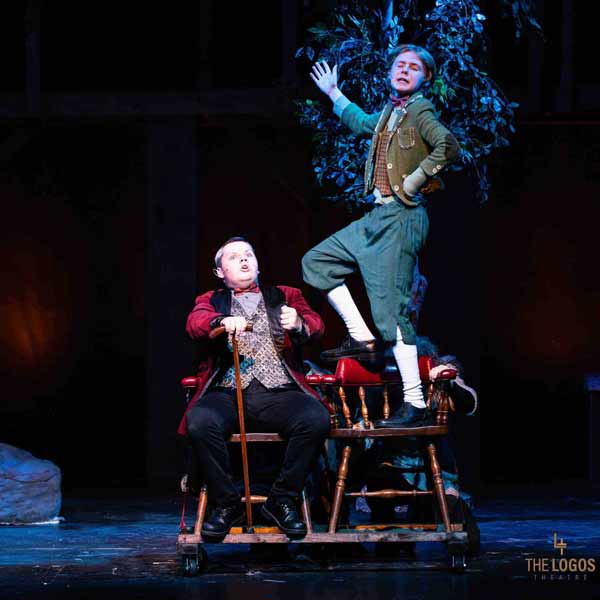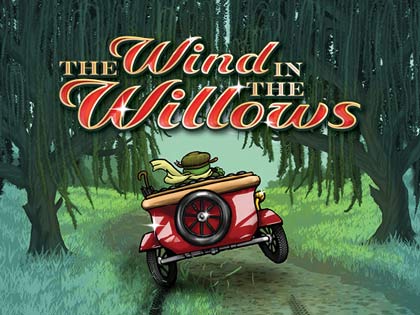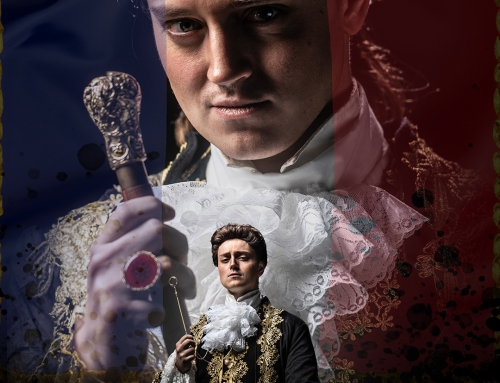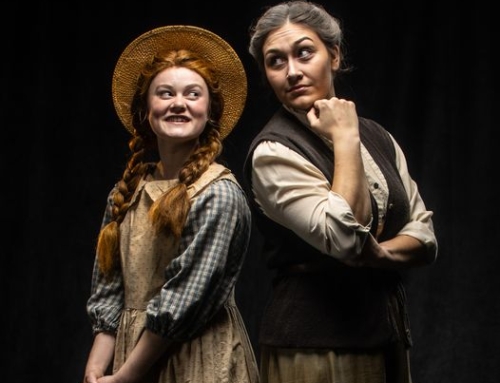Oh No! My Kid’s Dealing with Conflict: 3 Ways to Navigate Conflict and Relationships with Your Young People
October 6, 2022 | Leah Udinski
If you’ve lived any length of time in the world, you know that conflict is unavoidable. Here at The Logos Theatre, we talk about conflict as a positive thing in script-writing—conflict is what gives you the basis for your plotline, and it is the tool through which you reveal your characters’ hearts and decisions. It’s nice enough putting our characters through conflict for the sake of the story, but guiding our young people through their own relational difficulties can be scary as we anticipate the pain they will experience in conflict. Although we’d like to shelter them from all strife, we know that’s literally impossible if we want them to have any relationships at all.
So how can we, as parents and shepherds, teach our children to handle their relational conflict Biblically? I’d like to propose three different methods.
#1 Teach Them What True, Biblical Friendship Looks Like
Let’s start with the foundation of any Biblical relationship: Love.
Sound obvious, I know, but it’s not. Our children are surrounded by a culture that tells them that friendship is solely for fun, romance is for feeling good about yourself, and family is an out-of-date establishment that is holding you back from “the real you.” The idea of sacrificial Love is being removed from relationships entirely. We must be proactive in teaching our children that the cultural norms of self-centered relationships, sassy back-and-forths, and disrespect of authority are against the nature of Love.
I love how our production of The Wind in the Willows demonstrates Love in friendship. At the beginning of the story, Mole chooses to move out of hibernation into relationships with new friends. This is an important principle of Love–we cannot love others while isolating ourselves from them. God says it is not good for man to be alone, and we obey that reality when we purposefully lead our children from the comfort of our homes into safe and healthy friendships. The relationships Mole develops outside of his isolation can be difficult at times, but Mole learns to experience the beauty of friendship and to lay his own comfort on the line to help reckless Toad, Mrs. Otter, and little Dot.
Love requires vulnerability, ie, opening ourselves to real relationships, and sacrifice on behalf of the good of others. Encouraging your kids to come out of their shells and look to bless others rather than be blessed is a great way to take their relational mindset from self-centered to Love-centered.
A great way to equip children to love in practice is to teach them these two verses:
Proverbs 27:17, “Iron sharpeneth iron; so a man sharpeneth the countenance of his friend.”
Ephesians 4:15, “But speaking the truth in love, may grow up into him in all things, which is the head, even Christ:”
Mole reminds his friends Badger and Toad of these things early on in the play. Neither Badger nor Toad wants to speak honestly with each other after they disagree over Toad’s reckless actions, but Mole reminds them that their friendship and love for one another compel them to speak and sort things out. He helps Badger see that the correct way to deal with his frustration is speaking to Toad in loving admonition rather than cutting him off, and helps Toad to see that when Badger chides him, it is out of love and care. What a great example for our children to see! Love always seeks, even when that seeking involves sharpening each other and speaking hard truths.

#2 Arm Your Children to Handle Conflict Biblically
God’s word teaches us the principle of confrontation; Luke 17:3 says, “Take heed to yourselves: If thy brother trespass against thee, rebuke him; and if he repent, forgive him.” We must teach our little ones to confront and forgive.
Toad is confronted both by his friends and by his enemies in The Wind in the Willows. His enemies, the Stoats and Weasels, confront Toad out of anger and vengeance, wanting him to pay for the wrongs he has done. His friends confront him out of concern and care, desiring safety for both Toad and the other creatures around them. When Toad begins to make amends and repent, the Stoats and Weasels are not satisfied. They want their revenge. But his true friends are happy to see the positive change, and they keep encouraging Toad along the path of righteousness. Let us teach our little ones to confront and forgive, not out of a desire for vengeance, but out of a desire for the good of the other!
When our Lord confronts His children, He deals in both Truth and in Grace. It is important to teach our little ones to do the same.
Badger learns that he cannot operate with only Truth and no Grace in his dealings with Toad. Although it is true that Toad is being reckless and dangerous, Badger cannot in love just cut him out of his life. He must first see if Toad will be repentant after rebuke. This is dealing with Truth and Grace.
Likewise, Toad learns that he cannot just expect everyone to bow to his whims and desires. He cannot expect only Grace and no Truth, regardless of his actions. He learns to appreciate the Truth his friends speak in love.
We must teach our children to give both Grace and Truth. It is right to be hurt and bothered by sin (truth) and it is also right to long for reconciliation (grace). We must encourage these realities in our little ones’ hearts, for this is the way God deals with us!
Grace without Truth, or unfiltered acceptance, is against God’s character. Habakkuk 1:13 says that God cannot even look upon evil, and Psalm 5:5 tells us that God will not tolerate evildoers in his presence. In more familiar terms, God is holy, and commands us to be so as well (1 Peter 1:16). If we teach our children that they must accept the company and behavior of others regardless of what they do, we are teaching them to go against God himself. Likewise, Truth without Grace is against God’s character. Aren’t you glad our Lord didn’t have Truth without an equally perfect grip on Grace? If so, we would all be condemned eternally with no hope of salvation. Likewise, we must teach our children not to cut people out entirely just because they are imperfect. Otherwise, our children will be totally isolated!
Remind your kids to be honest with themselves and with others. Teach them to own their desires and feelings while recognizing that they can’t always have their own way. Teach them to respect others’ wants and hopes without feeling responsible for them. Teach them to give and make loving, selfless decisions even when they don’t feel like it. Teach them to fight for peace and reconciliation. Teach them to apologize humbly when wrong. And remind them to bear with others and forgive their grievances against them (Colossians 3:13).
#3 Teach Them to Love Truth More Than Social Acceptance
Remind your kids that not everyone is going to appreciate their Biblical view of relationships! Prepare them to be called “bigoted” for not blindly accepting sin. Prepare them to be called “too gracious” toward repentant sinners. Remind them that people thought and said these same things of Jesus! If we are called to live like Jesus lived, we should not be surprised when we are treated like he was.
In John 17:14, Jesus says, “ I have given [believers] thy word; and the world hath hated them, because they are not of the world, even as I am not of the world.” Even in his prayer for unity in the church, He acknowledges the truth that His obedient people will be hated and rejected by some. Prepare your kids for this truth, and remind them that even when the world hates them, they are loved by Christ, and that is worth all of the pleasures and treasures of this world!
This is another important lesson I take from The Wind in the Willows–truth doesn’t always make you popular. There are a whole myriad of creatures who have a lot to say about how Toad should be treated after his reckless actions. In the end, his friends ignore the crowd and try to make the right decision based on their love for Toad. He isn’t perfect, but he is loved!
Bottom line—In any healthy relationship, there WILL be conflict. Teach your kids to seek and speak truth even when it’s hard. Teach them to do everything in love. Teach them to have grace and forgive. And remind them that even in spite of the conflict, good relationships are a mess worth making!

Our desire here at The Logos Theatre is to use drama to teach these truths, and not the agenda of our world, and we are so glad to present this absolutely hilarious and heartwarming story to the young and old alike in our audience! I am also excited that our new resource, Show in the Box, is an opportunity for theatre groups, schools, or parents to access the resources to help them produce this show themselves. Getting young people involved in theatre is an incredible teaching tool for us, and we are so excited to help make that tool available to others as well!
The thing I am most excited for, though, is for these important truths to come to life in the hearts and minds of our little ones. The incredible fun, the laughter, and the lessons are something you and your family will not want to miss! I invite you to bring them and experience this show these next two weekends. Get your tickets here, but you’ll need to move fast to get them before they are gone!







